- Home
- Jr. Horatio Alger
Mark Mason's Victory: The Trials and Triumphs of a Telegraph Boy Page 15
Mark Mason's Victory: The Trials and Triumphs of a Telegraph Boy Read online
Page 15
CHAPTER XV.
A RAILROAD INCIDENT.
MARK pushed on intent upon reaching Cleveland. He decided not to stopoff at Niagara till he was on his return. He never for a moment forgotthat a great responsibility rested upon him for the safe delivery of thevaluable diamond pin intrusted to him by Mr. Swan. When it was safelyout of his hands and in those of Mrs. Loring he would feel relieved.
He was within a hundred miles of Cleveland in a car well filled withpassengers when his attention was called to a young lady sitting in theseat directly opposite him. She seemed lively and was particularlyattractive.
Mark was too young to be deeply impressed by female beauty, but heexperienced, like most persons, a greater pleasure in looking at abeautiful than at an ugly object. The young lady had been sitting alone,when a tall man of about forty came up the aisle and paused by her seat.
"Is this seat occupied?" he asked softly.
"No, sir."
"Then I will presume to occupy it."
"He must be a minister," thought Mark.
His clothes were of clerical cut, he wore a white necktie, and on hishead was a brown straw hat with wide brim. He folded his hands meekly onhis knees, and turned towards his young companion.
"I am sorry to intrude upon you, young lady," Mark heard him say.
"It is no intrusion, sir," answered the girl pleasantly. "I have onlypaid for one seat, and cannot expect to monopolize two."
"Nevertheless I am sorry if in any way I have intruded upon you. I am,as you may perhaps have inferred from my appearance, a minister."
"I thought you looked like one, sir."
"I am going to make an exchange with a clerical brother."
"Yes, sir," returned the young lady, wondering what interest she couldbe expected to take in this circumstance.
"I always like to get acquainted with young people. I may perhaps havean opportunity of influencing them for good."
"Just so, sir; but I think such advice is better suited for Sunday,don't you?"
"I am accustomed to drop words of counsel in season, and out ofseason."
"I would rather listen to them when they are in season."
"True! I stand reproved."
The minister took from his pocket a small volume which he opened andbegan to read.
"This volume," he said, "contains the sermons of the excellent Dr.Hooker. If I had another copy I should be glad to offer it to you."
"Thank you, I don't care to read just at present."
Half an hour passed. The minister put back his book into his pocket, andbowing politely, bade the young lady good morning.
"I am pleased to have made your acquaintance," he said.
"Thank you, sir."
Five minutes later the young lady put her hand into her pocket. Sheuttered a cry of alarm.
"What is the matter, miss?" asked Mark.
"My purse is gone!" exclaimed the young lady in a state of nervousexcitement.
"When did you last see it?" asked the messenger boy.
"About an hour ago. I bought a copy of MUNSEY'S MAGAZINE of the trainboy, and took out my purse to pay for it."
"An hour ago? You were sitting alone at the time?"
"Yes."
"Did any one sit beside you except the old gentleman who has just left?"
"No."
"You are sure it hasn't fallen on the floor?"
"I will look."
The young lady rose and looked about under the seat, but the lost pursewas not found.
"I--I don't see how I could have lost it. I have been sitting here allthe time."
An idea flashed upon Mark.
"It must have been taken by the man who just left you," he said.
"But that can't be! He was a minister."
"I know he was dressed as a minister, but I don't believe he was one."
"He looked just like one. Besides he was reading a volume of sermons. Ican't believe that he would rob me."
"There was one thing that didn't look very ministerial."
"What was that?"
"His nose. Do you not notice how red it was?"
"Yes, but I thought it might be some humor."
"It was colored by whisky, I think. I know topers in New York who havenoses exactly like his. You may depend upon it that he has your purse.I hope there wasn't much in it."
"Only about five dollars. Generally the loss would not inconvenience me,but as it is--" and she looked anxious.
"If--if I can be of any service," stammered Mark, "I hope you won't mindsaying so. I can lend you five dollars."
The young lady looked grateful, but seemed in doubt as to whether sheought to accept the offer.
"I don't know whether I ought to accept such an offer from a younggentleman--" she said hesitating.
"I am a _very_ young gentleman," said Mark smiling. "I am only sixteen!"
"That is true, and it does make a difference. Are you sure you can sparethe money for a day or two?"
"Quite so, Miss--"
"Loring," prompted the young lady.
"Are you related to Mrs. Arabella Loring of Cleveland?"
The young lady looked very much surprised.
"She is my mother," she replied. "But how in the world do you know ofher?"
"I will tell you later," answered Mark.
He felt that it wouldn't be wise to mention the commission, or let anyone know that he had a diamond ring in charge.
"Are you going directly to Cleveland, Miss Loring?"
"Yes, but about thirty miles this side I have a young niece at aboarding school. She will join me on the train, and will expect me topay her railroad fare. But for that, the loss of the money would haveentailed no inconvenience."
Mark drew from his pocket book a five-dollar bill and passed it to MissLoring.
"But how can I return this to you?" she asked.
"I will call at your house. I am going to Cleveland also."
"Do so. Here is my card."
She took out a small card and tendered it to Mark. On it was inscribed:
MISS FLORENCE LORING. No. 10011/2 Euclid Avenue.
"Inquire for me when you call!" she said.
"Thank you."
"It seems so strange that you should know my mother," she continuedevidently feeling curious.
Mark smiled.
"You will know in time," he said. "If we were alone I would tell younow."
Here there was a stop at some station, and a shabby and dirty-lookingman entered the car.
There was but one seat vacant, the one next to Florence Loring.
Mark hastily rose and sat down in it.
"I thought," he said apologetically, "you might prefer me to the man whohas just entered the car."
"By all means," she answered with a bright smile. "I prefer you also tothe clerical gentleman who rode with me earlier."
"Thank you. When your niece joins you I will vacate the seat in herfavor."
Florence Loring was perhaps nineteen, three years older than Mark. Shelooked upon him quite as a boy, and therefore felt under no constraint.
"Do you come from New York?" she asked.
"Yes."
"You seem young to travel alone."
"I don't think you can be much older than I," said Mark.
"Mercy! I feel ever so much older. I feel old enough to be your aunt."
"I shouldn't mind having you for an aunt," returned Mark.
"On the whole, though, it might prove to be too much of aresponsibility. You may be very hard to manage."
"Do you mind my calling you aunt?"
"Well, perhaps it might make me appear too venerable."
"Did you notice, Miss Loring, whether your clerical friend left the carswhen he left the seat?"
"No; I didn't feel any particular interest in him, and did not give hima second thought."
"Perhaps he may still be on the train. I have a great mind to go andsee."
"I don't think it would do any good. We could no
t prove that he took mypurse."
"If you will excuse me for five minutes I will make a search."
Mark went through the next car and entered the second one, which was asmoking car. He looked about him, and in a seat about the middle of thecar he saw the man of whom he was in search. He recognized him by hiswhite tie and his red nose. He was smoking a cigar and gazing out of thecar window.
The seat beside him being vacant Mark went forward and sat down in it.
The gentleman with the white tie glanced at him carelessly, but did notappear to think Mark was worthy of attention. He changed his mind whenMark said in a low voice:
"Please give me the purse which you took from a young lady in the secondcar back."

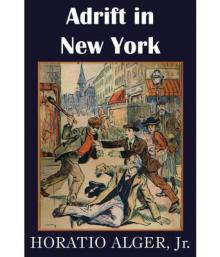 Adrift in New York: Tom and Florence Braving the World
Adrift in New York: Tom and Florence Braving the World Do and Dare — a Brave Boy's Fight for Fortune
Do and Dare — a Brave Boy's Fight for Fortune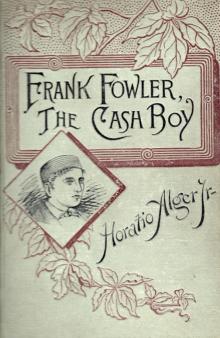 The Cash Boy
The Cash Boy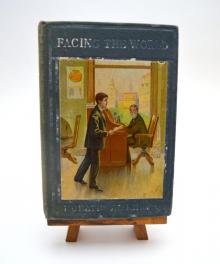 Facing the World
Facing the World The Young Explorer; Or, Claiming His Fortune
The Young Explorer; Or, Claiming His Fortune The Store Boy
The Store Boy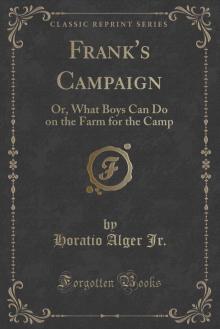 Frank's Campaign; Or, The Farm and the Camp
Frank's Campaign; Or, The Farm and the Camp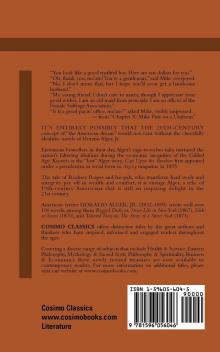 Cast Upon the Breakers
Cast Upon the Breakers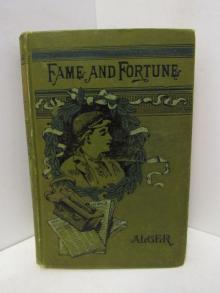 Fame and Fortune; or, The Progress of Richard Hunter
Fame and Fortune; or, The Progress of Richard Hunter The Errand Boy; Or, How Phil Brent Won Success
The Errand Boy; Or, How Phil Brent Won Success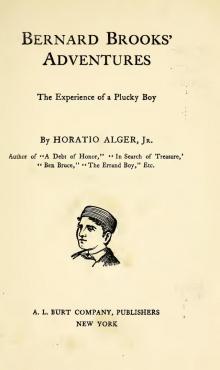 Bernard Brooks' Adventures: The Experience of a Plucky Boy
Bernard Brooks' Adventures: The Experience of a Plucky Boy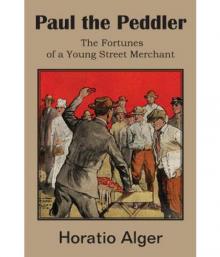 Paul the Peddler; Or, The Fortunes of a Young Street Merchant
Paul the Peddler; Or, The Fortunes of a Young Street Merchant Brave and Bold; Or, The Fortunes of Robert Rushton
Brave and Bold; Or, The Fortunes of Robert Rushton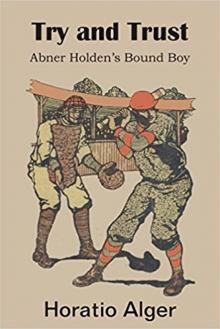 Try and Trust; Or, Abner Holden's Bound Boy
Try and Trust; Or, Abner Holden's Bound Boy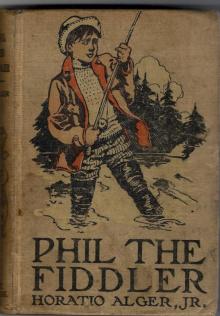 Phil, the Fiddler
Phil, the Fiddler In A New World; or, Among The Gold Fields Of Australia
In A New World; or, Among The Gold Fields Of Australia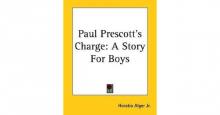 Paul Prescott's Charge
Paul Prescott's Charge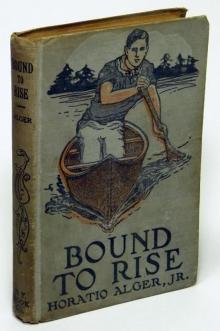 Joe's Luck; Or, Always Wide Awake
Joe's Luck; Or, Always Wide Awake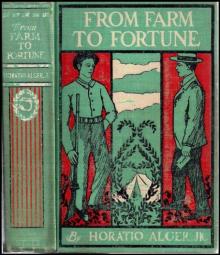 From Farm to Fortune; or, Nat Nason's Strange Experience
From Farm to Fortune; or, Nat Nason's Strange Experience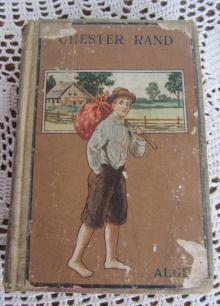 Chester Rand; or, The New Path to Fortune
Chester Rand; or, The New Path to Fortune Driven from Home; Or, Carl Crawford's Experience
Driven from Home; Or, Carl Crawford's Experience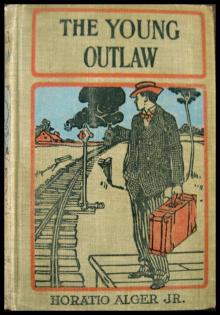 The Young Outlaw; or, Adrift in the Streets
The Young Outlaw; or, Adrift in the Streets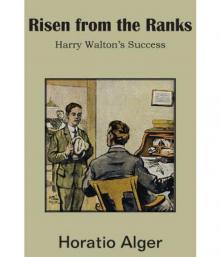 Risen from the Ranks; Or, Harry Walton's Success
Risen from the Ranks; Or, Harry Walton's Success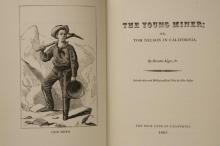 The Young Miner; Or, Tom Nelson in California
The Young Miner; Or, Tom Nelson in California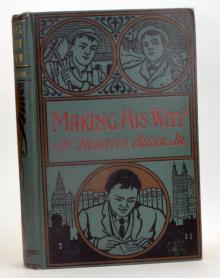 Making His Way; Or, Frank Courtney's Struggle Upward
Making His Way; Or, Frank Courtney's Struggle Upward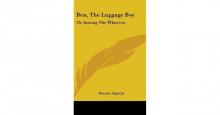 Ben, the Luggage Boy; Or, Among the Wharves
Ben, the Luggage Boy; Or, Among the Wharves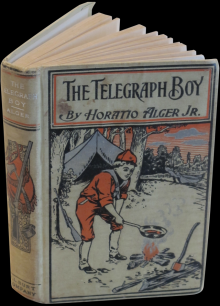 The Telegraph Boy
The Telegraph Boy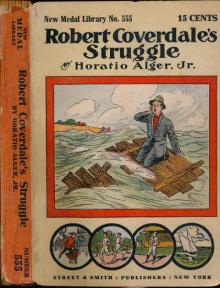 Robert Coverdale's Struggle; Or, on the Wave of Success
Robert Coverdale's Struggle; Or, on the Wave of Success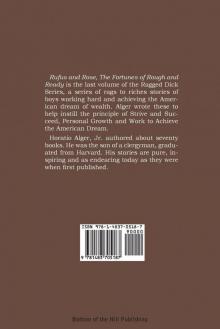 Rufus and Rose; Or, The Fortunes of Rough and Ready
Rufus and Rose; Or, The Fortunes of Rough and Ready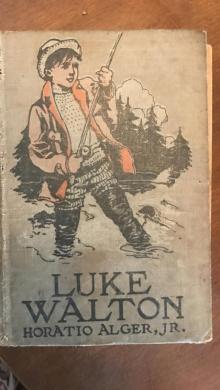 Luke Walton
Luke Walton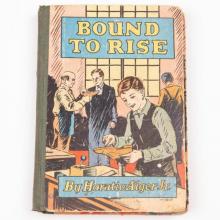 Mark Mason's Victory: The Trials and Triumphs of a Telegraph Boy
Mark Mason's Victory: The Trials and Triumphs of a Telegraph Boy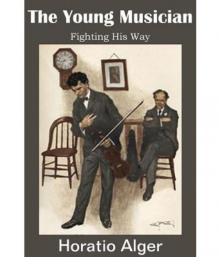 The Young Musician; Or, Fighting His Way
The Young Musician; Or, Fighting His Way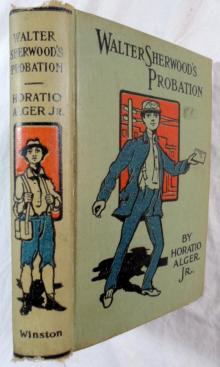 Walter Sherwood's Probation
Walter Sherwood's Probation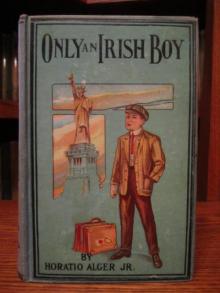 Only an Irish Boy; Or, Andy Burke's Fortunes
Only an Irish Boy; Or, Andy Burke's Fortunes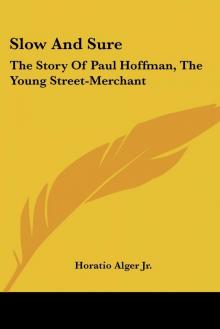 Slow and Sure: The Story of Paul Hoffman the Young Street-Merchant
Slow and Sure: The Story of Paul Hoffman the Young Street-Merchant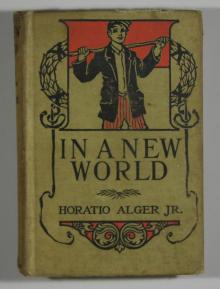 Herbert Carter's Legacy; Or, the Inventor's Son
Herbert Carter's Legacy; Or, the Inventor's Son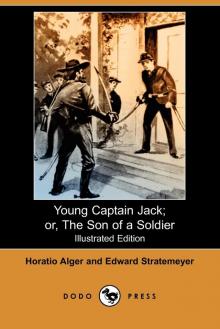 Young Captain Jack; Or, The Son of a Soldier
Young Captain Jack; Or, The Son of a Soldier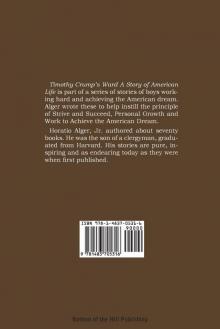 Timothy Crump's Ward: A Story of American Life
Timothy Crump's Ward: A Story of American Life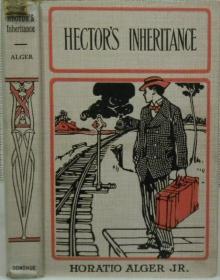 Hector's Inheritance, Or, the Boys of Smith Institute
Hector's Inheritance, Or, the Boys of Smith Institute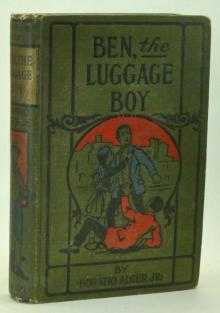 Ben's Nugget; Or, A Boy's Search For Fortune
Ben's Nugget; Or, A Boy's Search For Fortune